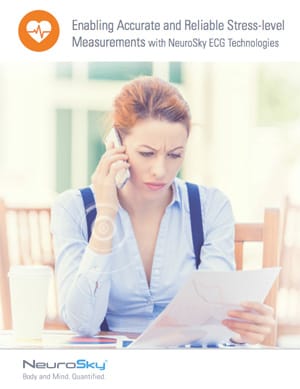One of the greatest advantages of modern technology is that it brings once-unreachable ideas within our grasp. We’ve enjoyed great advances in medicine, but growing populations and shrinking budgets have put a strain on health professionals, negatively affecting their ability to treat patients in person.
As a result, researchers, developers, and scientists are exploring the new frontier of telemedicine—and changing the way we look at the relationship between health and technology in the process. In fact, the global telemedicine market is expected to grow at an 18%+ CAGR from 2016 through 2022. As in any emerging field regulation and further research is needed, but mobile monitoring devices—both existing and yet-to-be-developed—could help combat the global healthcare crisis.
What is Telemedicine?
Telemedicine is the process of using telecommunications to remotely diagnose, implement, and execute medical treatment plans for patients. It also has a multitude of applications for the ongoing monitoring of a patient’s health.
Internationally, telemedicine is giving primarily Western doctors the ability to observe and diagnose patients in developing regions or regions without consistent access to sufficient health care. Imagine living thousands of miles away from a specialist, yet still being able to have them diagnose and treat you—all without leaving your home. Telemedicine and mobile health care makes this type of interaction a viable option.
Similarly in North America, the reality for many patients is that it is difficult for them to travel to meet with their physician or a specialist. Telemedicine can eliminate the distance between doctors and patients—allowing assessments, diagnoses, and monitoring to take place remotely.
While telemedicine doesn’t completely remove the human element—specialized physicians still can only address one patient at a time for so many hours a day, and health care professionals are still needed to administer treatment to patients in-person—it helps remove some of the geographical challenges preventing widespread access to various types of health care.
Why Isn’t Telemedicine Already Standard?
One of the major roadblocks standing in the way of the global implementation of telemedical technologies is a need for uniform regulation. For example, holding a medical license in one country does not necessarily allow you to practice in another. In the United States, the validity of medical licenses can vary from state to state, making it difficult to remotely diagnose or monitor patients who are merely miles away, let alone on another continent.
As regulations evolve along with the practical applications of telemedicine, the market for mobile health devices will boom. The development of new technologies to perfect remote diagnostics, monitoring, and treatment will be necessary—and lucrative.
ECG Biosensors Power Telemedicine and Mobile Health
NeuroSky’s ECG biosensors provide an ideal platform for telemedicine and mobile health devices. That’s because our ECG biosensors are small enough to fit in any device, all while capturing critical data and translating it into an easy-to-understand heart-health index. Whether a medical professional is in the room or halfway around the world, our ECG biosensors are able to provide them with valuable information that can be used to diagnose and monitor a patient. Learn more about our ECG biosensors here.
Telemedicine and Mobile Health: The Next Great Frontiers
While many may consider telemedicine to be the technology of tomorrow, the truth is that it being used and developed today. The time to begin thinking about how ECG biosensors can help you develop the next life-saving application or software for medical professionals is now. For more information on how NeuroSky can help your organization lead the way in the world of mobile health and telemedicine, contact us today!



